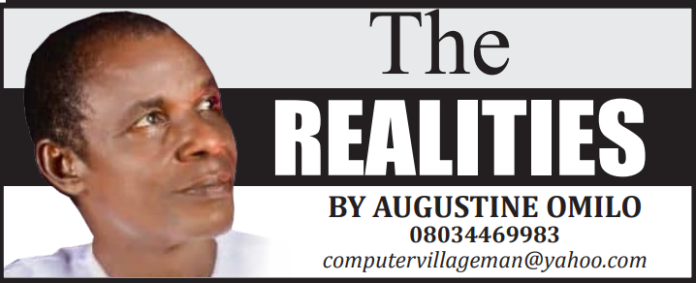Not too long ago, it was widely reported that the Independent National Electoral Commission, INEC has submitted a number of electoral subject items to the National Assembly with a view to modifying the current laws of the nation. This, according to the electoral umpire headed by Professor Mahmood Yakubu, is to, among other things allow more Nigerians to participate in democratic elections in the country and help restore confidence in the system.
Specifically, INEC expressed the need to allow early voting and diaspora inclusion in the voting arrangements to ensure that voter apathy is reduced to the barest minimum. The body also suggested its proposal that the modifications should permit those with computer-generated voter’s permission slips to vote, still in order to allow more Nigerians vote in state and National election and equally help to reduce the cost of organizing elections in Nigeria.
However, a spurious scenario propped up in the nation’s House of Representatives when the Speaker, Tajudeen Abbas, and Daniel Asama, a lawmaker from Plateau State jointly sponsored a bill seeking to make voting in state and national elections compulsory for all adults of voting age. The recommends a jail term of six months imprisonment or N100,000 fine or both for defaulters.
As expected, the bill which has speedily passed through second reading provoked heavy debates. While the sponsors of bill insist that the bill, if passed into law would go a long way to helping to curb voter apathy, many members from opposing political parties hold the view that the problem would persist so long as the factors behind them remain unattended to. They cite issues such as insecurity, electoral manipulations and intimidation and vote buying as some of those anomalies in our democratic system.
While agreeing the submissions of those who are opposing the proposal, many Nigerians are saddened with the fact that what the honourable members are seeking to achieve have earlier been captured by Mahmood’s suggestions. This leaves many people confused about the level of synergy between the law makers in Nigeria and the rest of the populace. Their present actions amount to duplicity of intentions. And it simply means that, either they are not aware of all the legislative documents before them or they are not bothered about the economic stress their double standard approach to electoral reforms will bestow on Nigeria.
The law makers failed to explain to the people how the total turnout-out out of Nigeria’s voting population would help make good leadership choices despite the hunger in the land. Austrilia, one of the countries cited as practicing compulsory voting, turnout of voters have not been more than 90% of registered persons. The US, one of the best democracies in the world, out of the 245 million Americans eligible to vote, almost 90 million did not exercise that right in November 2024 – and that’s significantly more than the 77 million who put Trump back into power, or the 75 million who turned out to vote for Kamala Harris.
Besides, it is absurd to be comparing Australia’s informed position on good governance as a result of level of literacy standing at 99% with Nigeria’s which stands at a disputable 62%. The stark reality is underscored by a 2024 UNICEF report that reveals that only 26% of Nigerian children and adolescents aged 7-14 possess basic reading and math skills, highlighting the nation’s deep-rooted education crisis.


